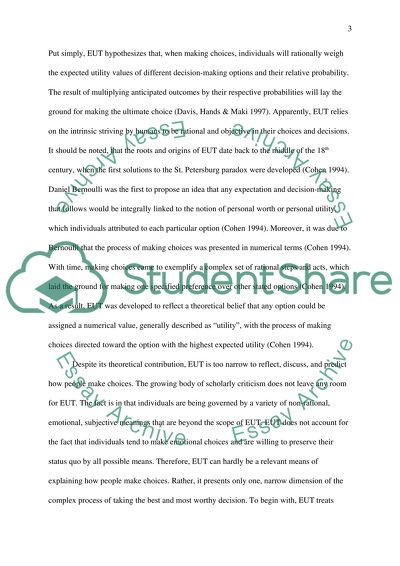Cite this document
(“Is Expected Utility a good theory for explaining how people make Essay”, n.d.)
Retrieved from https://studentshare.org/environmental-studies/1405288-tis-expected-utility-a-good-theory-for-explaining
Retrieved from https://studentshare.org/environmental-studies/1405288-tis-expected-utility-a-good-theory-for-explaining
(Is Expected Utility a Good Theory for Explaining How People Make Essay)
https://studentshare.org/environmental-studies/1405288-tis-expected-utility-a-good-theory-for-explaining.
https://studentshare.org/environmental-studies/1405288-tis-expected-utility-a-good-theory-for-explaining.
“Is Expected Utility a Good Theory for Explaining How People Make Essay”, n.d. https://studentshare.org/environmental-studies/1405288-tis-expected-utility-a-good-theory-for-explaining.


